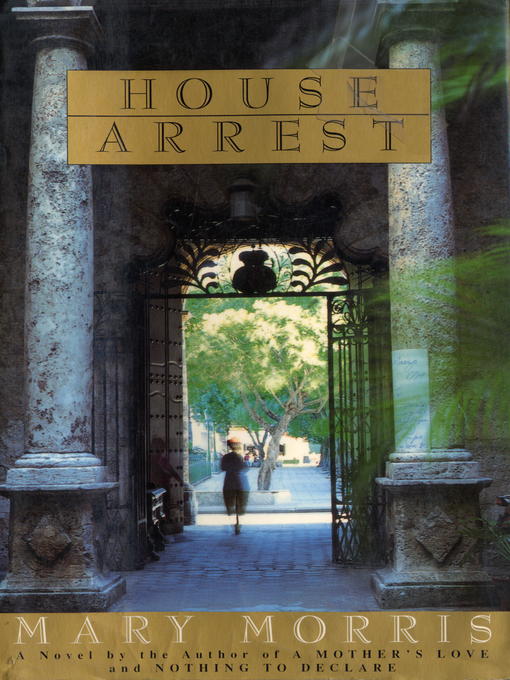
House Arrest
کتاب های مرتبط
- اطلاعات
- نقد و بررسی
- دیدگاه کاربران
نقد و بررسی

April 1, 1996
A small Caribbean island whose people are starved for food and freedom is the setting for Morris's fourth novel (after A Mother's Love). Like Morris, who is also a travel writer (Nothing to Declare), protagonist Maggie Conover writes for a travel magazine. She has returned to la isla to update a guidebook she wrote two years earlier. It's a bad idea: during her previous visit, she secretly gave her passport to Isabel Calderon, the outspokenly disenchanted daughter of the dictator, El Caballo, so that Isabel could flee the island in disguise. Maggie's naivete in returning to this totalitarian state is compounded by her behavior after she's arrested and detained in a seedy hotel. Slow to discern the danger of her position, she never contacts the embassy or a lawyer, in spite of her interrogation by a greasy government functionary, and other frightening incidents. Were this the only improbability, the reader might overlook Maggie's passivity, especially since Morris does provide some motivation for her flaky behavior. But it's hard to accept that Isabel, her mother and her daughter each achieve instant emotional intimacy with Maggie, immediately pouring out the stories of their lives in dangerously candid detail. These long, lyric confessions provoke echoes of Isabel Allende, but they lack her magic resonance. In the end, it is not Maggie's story but the claustrophobic atmosphere of a country locked in a dictator's iron grip that the reader will find unforgettable.

April 1, 1996
Novelist (A Mother's Love, LJ 2/15/93) and travel writer (Nothing To Declare, Atlantic Monthly, 1992) Morris brings both interests together in this new novel. Maggie Conover's latest assignment for "the aging-hippie travel guide service" for which she works is in a Communist country in the Caribbean known as "la isla." On a return visit, she is detained at immigration and subsequently awaits deportation while under house arrest at a tourist hotel. With lots of free time on her hands, Maggie becomes retrospective, remembering her love for her husband and young daughter, yet her need to get away from them on these working excursions; her conflicting feelings about her employer and ecotourism; and, most especially, a woman named Isabel she met on her last visit to la isla whom she knows to be the source of her current troubles. Maggie's hopes and fears, as well as those of Isabel, estranged daughter of the island's revolutionary leader, are intimately revealed, allowing us to feel the isolation and desperation that both women experience. Recommended for women's studies and popular collections.--Debbie Bogenschutz, Cincinnati Technical Coll.

May 1, 1996
A writer for an "aging hippie travel guide service," Maggie Conover has returned to "la isla" in the Caribbean, ostensibly to update information on hotels and tourist sites. But she is placed under house arrest, apparently because she had befriended Isabel Calderon, the now-missing daughter of the island's despotic leader, El Caballo. As Morris painstakingly unfolds the story, it becomes clear that Maggie aided El Caballo's rebellious daughter in escaping the poverty-stricken, claustrophobic island. Told in flashbacks and from varying viewpoints, Isabel's story is the story of the island and its people, the political made personal. Maggie's relationship with the sensuous, tempestuous Isabel is erotically charged if never consummated. The ambiguity provides the tension: Has Maggie been seduced into a dangerous act? Or is she doing what she thinks is right, politically and morally? Detained by the government police, she is forced to examine her decisions, her life, and marriage and womanhood, in the light of both her needs and her heretofore suppressed desire for intrigue and adventure. Although the ending seems a bit snapped off, this is a rich and nuanced novel. ((Reviewed May 1, 1996))(Reprinted with permission of Booklist, copyright 1996, American Library Association.)

























دیدگاه کاربران